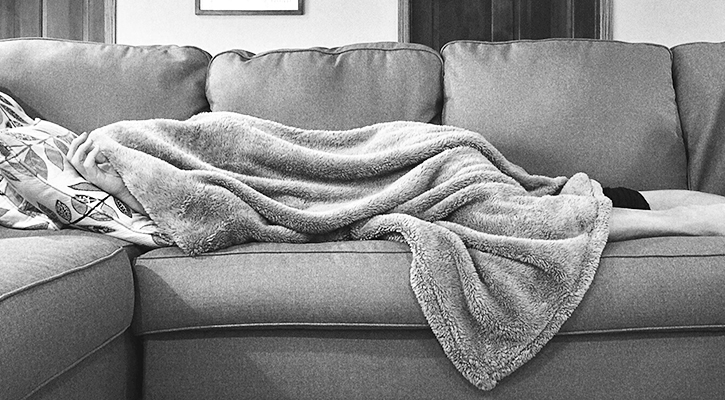Trying to strike that elusive ‘balance’ is hard, but why is it that on our quest to figure out the perfect life equation, the first thing we’re willing to subtract is sleep? While striking a balance between work, workouts and social commitments can be tough, sleep should be a constant priority. While our bodies are amazing and capable of incredible things, we have to remember that we’re only human and contrary to what we might think, we can’t run on empty, so it’s imperative we give our bodies the rest and repair they need every single night. You wouldn’t leave your car engine running all night and still expect it to start in the morning, so why should we treat our bodies any differently?
But it’s not just our mood lack of sleep can interfere with… not clocking 7-8 hours of quality sleep a night can affect your weight too. Sleep plays a big part in everything from appetite and digestion right through to cravings and metabolism. Lack of sleep or poor sleep quality can slow the body’s metabolism down, prompting the body to store fat instead of expending it, it can alter your bodies hunger hormones, increasing your appetite and it can also increase cravings for high salt high sugar foods.
Here are some tips on how to help yourself with sleep:
Tech free zone
Having one last scroll through instagram before bed might seem harmless in theory, but mobiles, laptops and iPads emit electromagnetic radiation, which can disrupt and delay the quality of your sleep. Keep tech devices out of the bedroom and try and limit screen time at least two hours before you hit lights out.
Create a PM routine
Maintaining a regular bedtime each night will help your body slip into a regular circadian rhythm (a.k.a. body clock). Furthermore, creating some night time habits like dimming the lights two hours before bed and having a cup of calming tea (caffeine free of course).
Limit food and drink
Limit caffeine and alcohol consumption in the afternoon to avoid an excess of toxins in the body before bed. In theory, a nightcap might initially help you fall asleep, but it will interrupt the quality and usually results in broken sleep. Similarly, try and finish eating at least two hours prior to bed as the digestive process can interrupt sleep.
Regulate temperature
As tempting as it is to fall into a piping hot shower before you hit the hay, warming the body will actually end up keeping it awake. When your temperature cools down, it slows our metabolic rate right down, making everything we do that little bit harder and slower – perfect to lull you to sleep!
